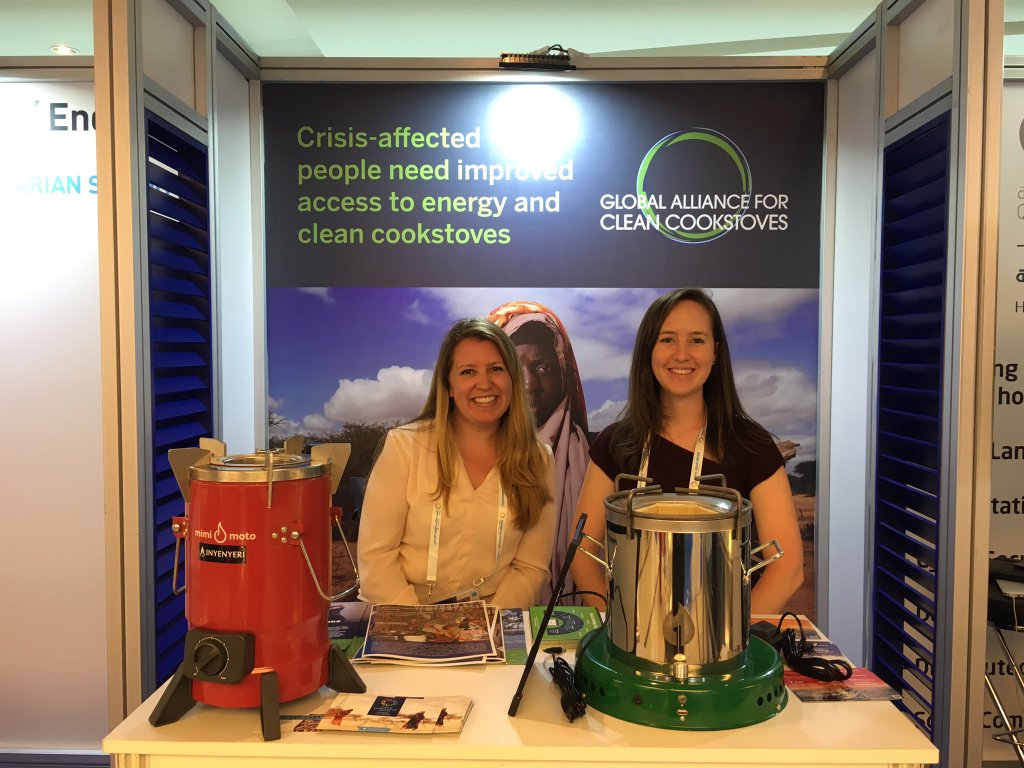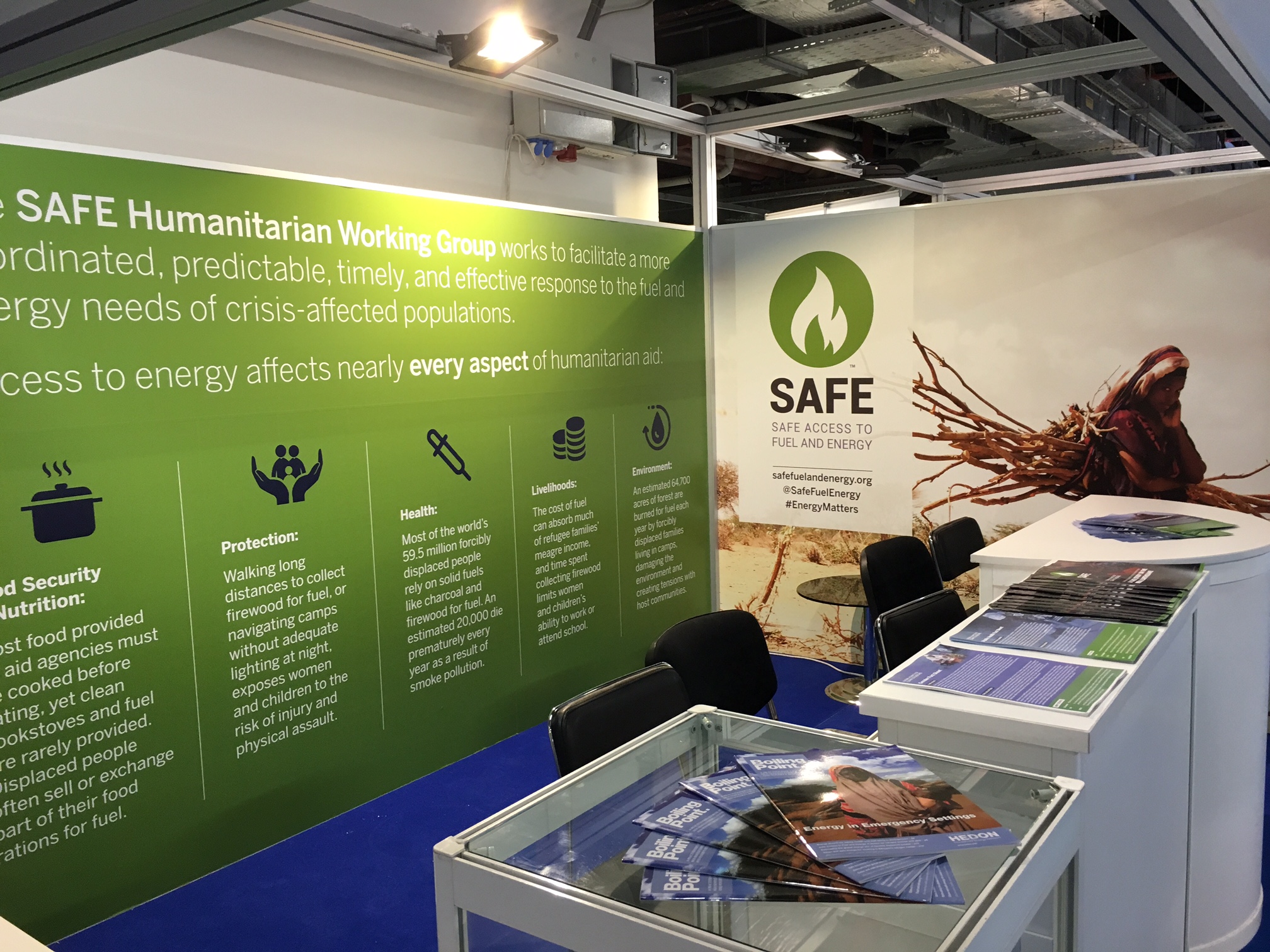Advocating for Energy Access at the World Humanitarian Summit
“Crisis-affected people need more access to energy, clean fuel, and efficient cookstoves.” This was the message delivered by the Alliance at the World Humanitarian Summit (WHS) in Istanbul this week. Along with the World Food Programme (WFP), the Food and Agriculture Organization (FAO), Mercy Corps, and other key partners, the Alliance advocated to make energy access for heating, lighting, cooking, and powering a higher priority in humanitarian interventions. As noted in the Safe Access to Fuel and Energy (SAFE) Humanitarian Working Group’s #EnergyMatters campaign during the past month, energy access impacts nearly every area of humanitarian response and is key to addressing Core Responsibilities 3 and 4 in the UN Secretary-General's Agenda for Humanity.
As part of the Summit, the Alliance co-hosted a formal side event with Chatham House, UNHCR, and other partners to discuss how energy access can transform the lives of those most at risk of being left behind, reduce risk for vulnerable populations, and transcend the humanitarian-development divide by enabling sustainable and durable solutions. Halima Mohamed, a refugee community leader from Nakivale settlement in Uganda, provided her perspective on the risks and opportunities associated with cooking in crisis settings:
“You can see many women are getting risky, because of when they are going to find firewood they are being raped; some of them are being beaten… When they teach us about cooking stoves, how to make charcoal, we have seen the community starting to develop.”
Halima’s heartfelt remarks were followed by a roundtable discussion with participants and comments from a panel of high-level humanitarian and donor agency representatives, including Baroness Sandip Verma of the UK Department for International Development (DfID), UN Foundation Senior Vice President Susan Myers, Laurent Thomas from FAO, Dr. Arif Husain of WFP, and Mr Jelte van Wieren of the Netherlands Ministry of Foreign Affairs. Ultimately, the event highlighted that energy access is a critical, life-saving component of humanitarian response and should therefore have a formal, interconnected place within the humanitarian system. As co-chairs of the SAFE Humanitarian Working Group, the Alliance, WFP, and FAO are currently advocating for the establishment of a formal Reference Group in the UN system to coordinate energy response efforts in emergencies, such as the provision of clean cookstoves and solar lights to survivors of the 2015 Nepal earthquake.
The side event was only one part of the Alliance’s WHS activities. Along with partners Project Gaia and African Clean Energy (ACE), the Alliance displayed innovative clean cooking technology at the Summit’s Innovation Marketplace and raised awareness about the importance of clean cookstoves and fuel at the SAFE Working Group’s booth in the WHS Exhibition Fair, which opens to the public on May 25th. The Alliance also joined numerous humanitarian agencies and national governments in making formal commitments to further the Core Responsibilities – pledging to investigate the linkages between sexual and gender-based violence and energy access, as well as work with humanitarian agencies to innovate on technology and approaches to increasing access to household cooking energy.


